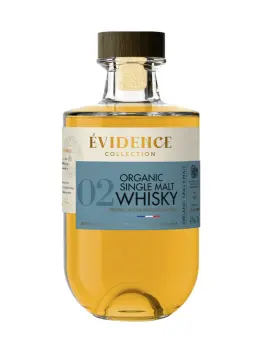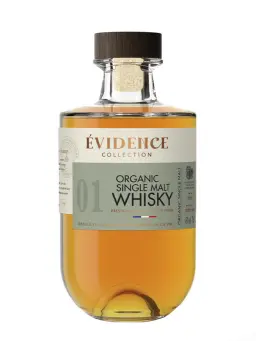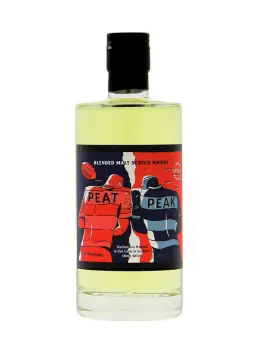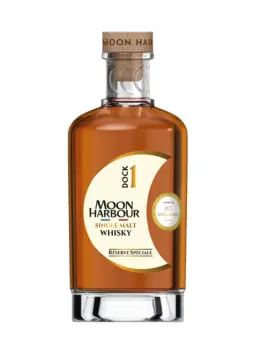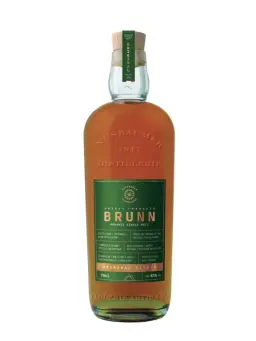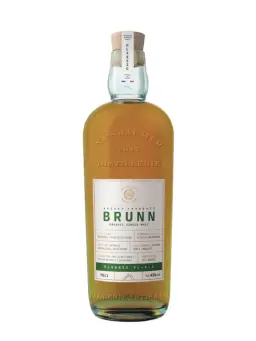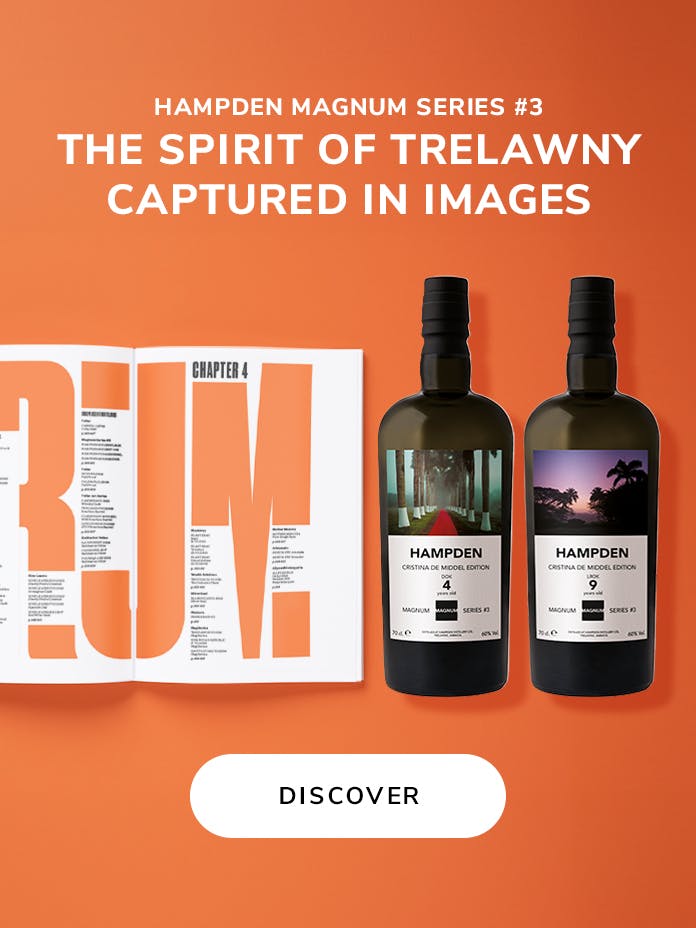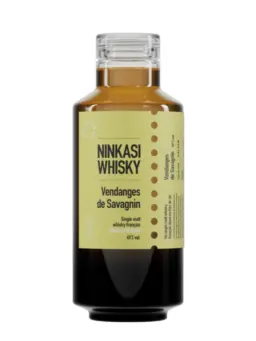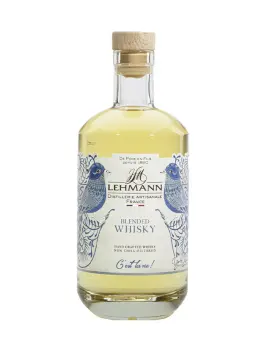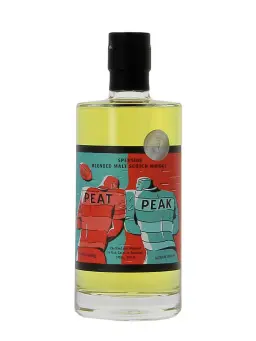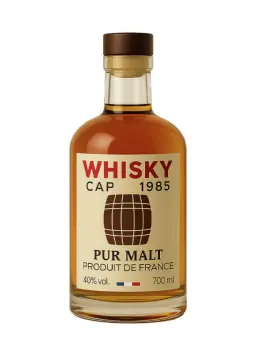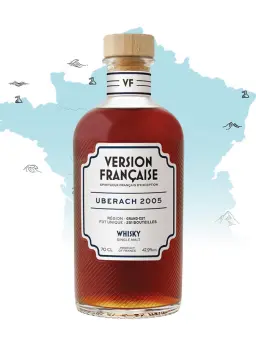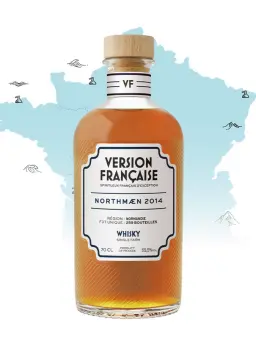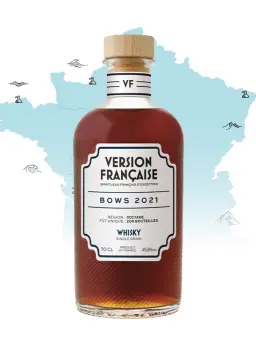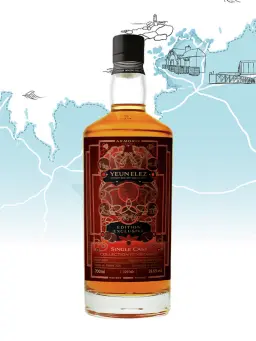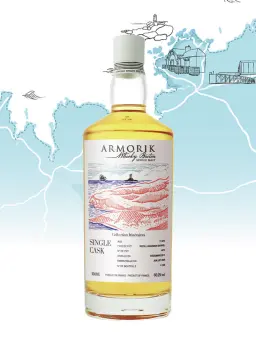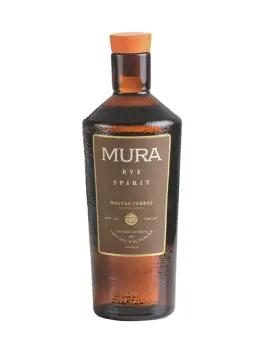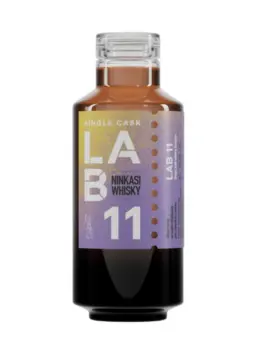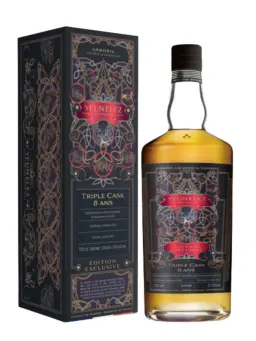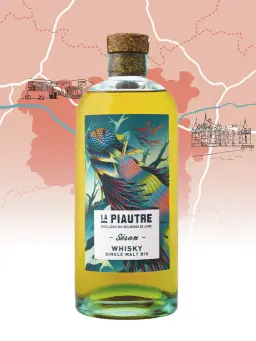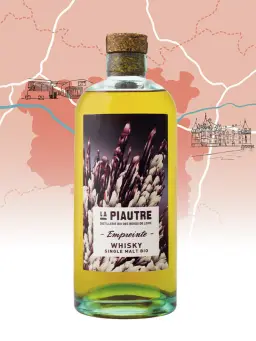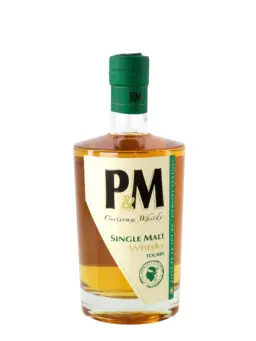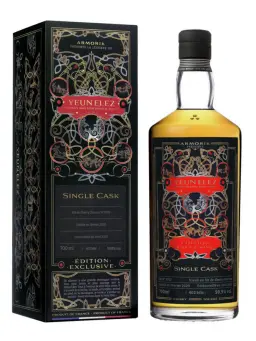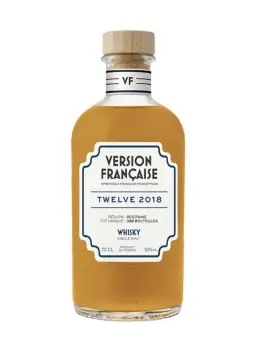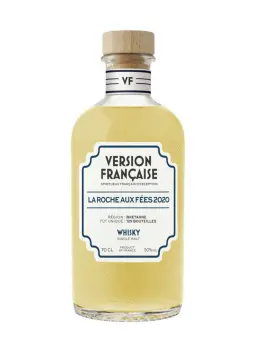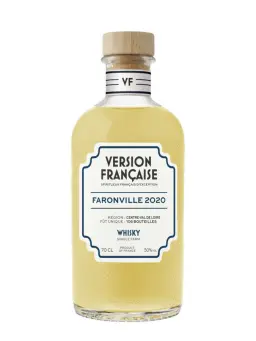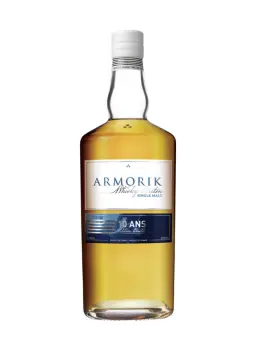Whiskies Français
The history of French whisky truly began in 1983 in Lannion, Brittany. Since then, the sector has experienced explosive growth, with the number of distilleries steadily increasing. In 2000, France had only 7 distilleries—a figure that rose to 20 by 2010. Since 2015, over a hundred new distilleries have emerged across the country. Forty years after its inception, French whisky has firmly established itself in the landscape of French spirits. Today, every metropolitan region hosts several distilleries. Although production and sales have yet to match those of traditional whisky powerhouses such as Scotland, Ireland, the United States, or Japan, the foundations for French whisky are solidly in place.
PEAT AND PEAK 2023 43%
BRUNN Whisky Classic Bio 43%
PEAT AND PEAK Speyside 43%
ERNEST Single Grain 40%
France and whisky share a timeless love affair. Yet for many years, France was known more as a consumer than a producer. With a rich heritage in distillation and cereal production, the Hexagon had all the ingredients to craft exceptional whiskies. Traditionally, the focus was on fruit brandies, wines (cognac, armagnac), and liqueurs, but today French whisky stands out as a unique art form.
The Birth of French whisky in Brittany
The journey of French whisky began in Brittany at the Warenghem Distillery during the 1980s. In 1983, Gilles Leizour, the heir to the distillery, aspired to create the first 100% French and Breton whisky. This vision materialized in 1987 with the launch of WB—a modest blend that would eventually evolve into the renowned single malt Armorik from Warenghem.
Soon after, the Menhirs Distillery introduced buckwheat whisky in 1996 with Eddu, showcasing a distinctly Breton character. This bold move set off a wave of innovation, with many French distilleries embracing the whisky challenge in the following years.
The Rapid Growth of French whisky
For a long time, a lack of clear regulations meant that any whisky produced in France could be labeled as French whisky, even if it was merely a blend of imported Scotch with French grain whisky. However, in recent years, the standards have dramatically shifted.
Today, to qualify as French whisky, the spirit must be distilled, aged for at least three years in oak barrels, and bottled in France. This regulation has allowed French whisky to truly shine, showcasing local terroir and traditional techniques. Many small, artisanal distilleries now produce French whisky that is as unique as it is high quality.
The Unique Features of French whisky: A Terroir Story
French whisky quickly distinguished itself by not following in the footsteps of its Scottish cousin. Instead, it has built its reputation on regional expertise, traditional distillation methods, and a deep connection to terroir.
A Variety of Still Types
France’s long history of mobile distillation has led to the development of compact, practical stills—true marvels of ingenuity. Across the country, a diverse range of stills, from Charente to Armagnac, Cognac, Burgundy, Stupfler, and Blavier, plays a crucial role in defining the style and character of French whisky.
Established distilleries, with experience in producing fruit brandies, cider, wine, or liqueurs, have leveraged their equipment and expertise to innovate. Meanwhile, emerging farm distilleries and new spirit creators have embraced local terroir, investing in small, regionally distinctive stills. This variety in distillation techniques contributes to the surprising and original styles that define French whisky.
Often Locally Sourced Cereal Production
Terroir also influences the raw materials used. For example, the Menhirs Distillery employs buckwheat, while the Domaine des Hautes-Glaces farm distillery practices small-batch bottling.
In addition to these innovative approaches, France also produces single malts made exclusively from malted barley. The country’s rich cereal diversity—even incorporating wheat, rye, or ancient grains like einkorn—further enriches the distinctive profile of French whisky.
A Wide Range of Barrels
Terroir is equally expressed in the aging process. Like its Scottish counterpart, French whisky must be aged for three years in oak barrels. However, French producers often experiment with different cask types, including American bourbon barrels, Spanish sherry casks, and predominantly French oak. In Brittany, some bottlings even highlight new barrels made from the oak of the Brocéliande forest.
Many French whisky makers favor short supply chains for sourcing their barrels. In a nation with a rich viticultural history, this approach allows them to experiment with various aging and finishing techniques, adding complexity and uniqueness to their whiskies. Examples include whiskies aged in yellow wine or macvin casks in Franche-Comté, or barrels previously used for local wines or other spirits like ratafia or pineau in Charente.
For French whisky, the key principles are craftsmanship, experimentation, and terroir. This commitment to quality and innovation has enabled French whisky to reinvent itself, delighting enthusiasts with originality and excellence.
The Must-See French whisky Distilleries
Distillerie Grallet-Dupic
Located at the heart of a family-run arboricultural and cereal enterprise established in 1877, this distillery originally focused on fruit brandies. Recently, it has ventured into Lorrain whisky production under the Rozelieures label, contributing to the growing reputation of French whisky.
Distillerie Warenghem
With over a century of heritage in Brittany, Warenghem is a major player in the French whisky scene. As the pioneer of Breton whisky with its Armorik range, Warenghem has evolved to offer a diverse collection of whiskies. Their long-standing expertise and commitment to innovation allow them to create whiskies that seamlessly blend Celtic influences with traditional French distillation techniques, celebrating the true essence of French whisky.
Eddu French whisky
Produced by the Menhirs Distillery in Brittany, Eddu is renowned as the world’s first whisky distilled from buckwheat, a traditional regional ingredient. Established in 1986 and later diversifying into whisky production in the early 2000s, Eddu French whisky is celebrated for its unique character and distinctive taste, offering an unprecedented sensory experience rooted in Breton heritage.
Distillerie Ninkasi
Founded in 1997 in Lyon, Ninkasi began as a brewery before quickly expanding into spirit production, including whisky. Known for its innovative approach, Ninkasi integrates brewing techniques into whisky distillation, creating modern French whisky with unique malted notes. Their commitment to experimentation and cultural fusion reflects the creative and dynamic spirit of Lyon, making Ninkasi a standout in the world of French whisky.
